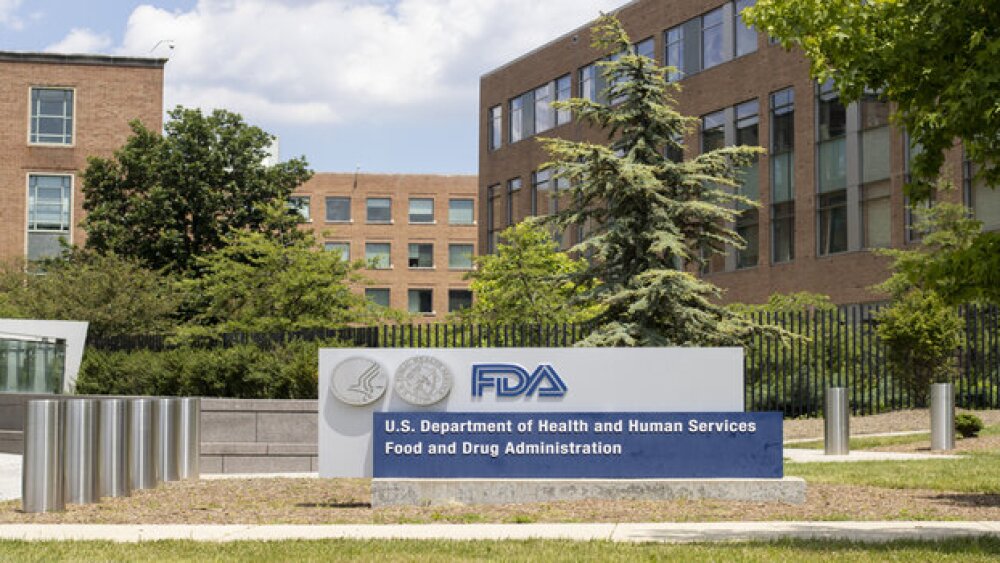Orchard Therapeutics on Monday secured the FDA’s first approval for an autologous gene therapy to treat the rare metabolic disease metachromatic leukodystrophy in children.
Pictured: FDA signage at its headquarters in Maryland/iStock, hapabapa
The FDA on Monday approved Orchard Therapeutics’ autologous gene therapy atidarsagene autotemcel, which will now be marketed as Lenmeldy, for the treatment of metachromatic leukodystrophy in pediatric patients.
Lenmeldy is the first authorized gene therapy for children with pre-symptomatic late infantile or early juvenile metachromatic leukodystrophy (MLD), according to the FDA’s press release on the approval. Lenmeldy is also the first approved therapy for early juvenile or early symptomatic forms of the disease.
Orchard CEO Bobby Gaspar in a statement said that Lenmeldy’s approval “opens up tremendous new possibilities” for children suffering from these early-onset forms of MLD, “who previously had no treatment options beyond supportive and end-of-life care.”
The company on Monday did not provide specific launch details for Lenmeldy but promises to do so within the week.
MLD is a rare and heritable metabolic disease that affects one in every 100,000 live births. It is characterized by a pathological build-up of sulfatides in the brain, liver, kidneys, spleen and other body parts, which over time can cause organ damage and neurological issues. Those with MLD often suffer from motor, behavioral and cognitive problems, as well as seizures. Patients also slowly lose the ability to move, talk, swallow and eat.
Children with MLD often degenerate to a vegetative state and require round-the-clock care. Most patients die within five years of disease onset.
MLD is caused by a mutation in the arylsulfatase-A (ARSA) gene, which under healthy circumstances produces an enzyme that breaks down sulfatides. Orchard’s Lenmeldy is an autologous gene therapy that uses a patient’s own stem cells to deliver a functioning copy of the ARSA gene. This mechanism of action won Lenmeldy the FDA’s Rare Pediatric Disease and Regenerative Medicine Advanced Therapy designations.
Lenmeldy was also approved by the European Union in December 2020, where it is marketed as Libmeldy.
The FDA’s approval of Lenmeldy is backed by data from two single-arm, open-label trials enrolling a total of 37 pediatric MLD patients. Over a median follow-up of 6.76 years, Lenmeldy led to significantly better overall survival compared with natural history data. The gene therapy also preserved motor and cognitive function in late-infantile MLD patients, whereas untreated counterparts had severe impairments.
In terms of safety, Lenmeldy’s most common adverse events were febrile neutropenia, stomatitis, respiratory tract infections and rashes. These are reflected in the therapy’s label, which also bears warnings for thrombosis and thromboembolic events, encephalitis and the risk of hypersensitivity reactions.
Tristan Manalac is an independent science writer based in Metro Manila, Philippines. Reach out to him on LinkedIn or email him at tristan@tristanmanalac.com or tristan.manalac@biospace.com.






